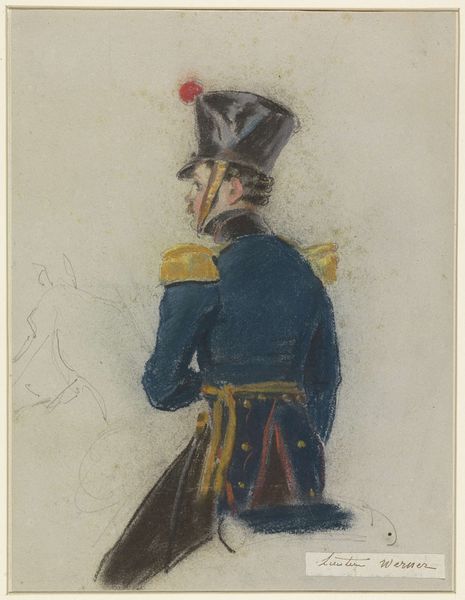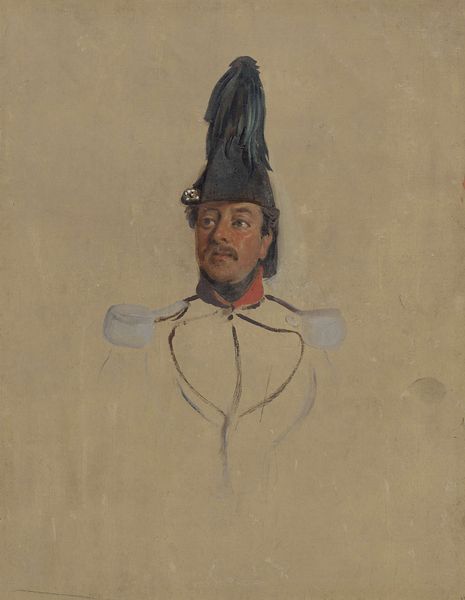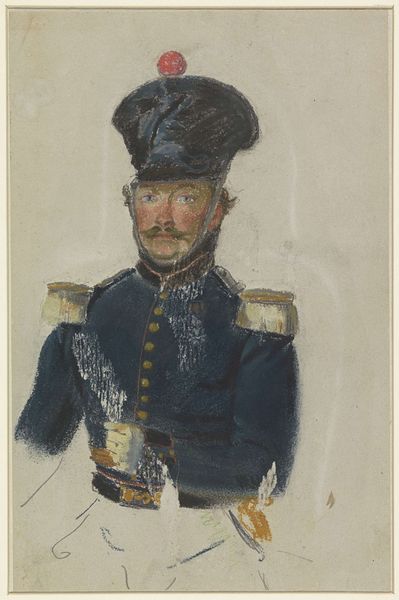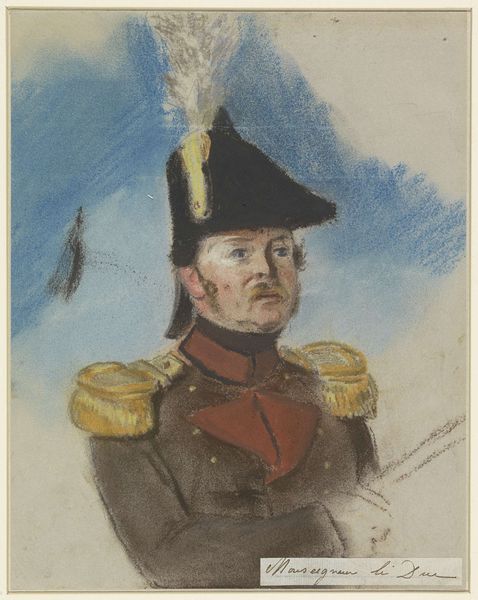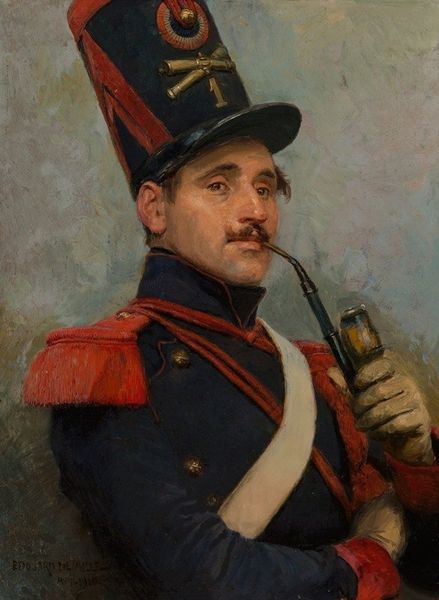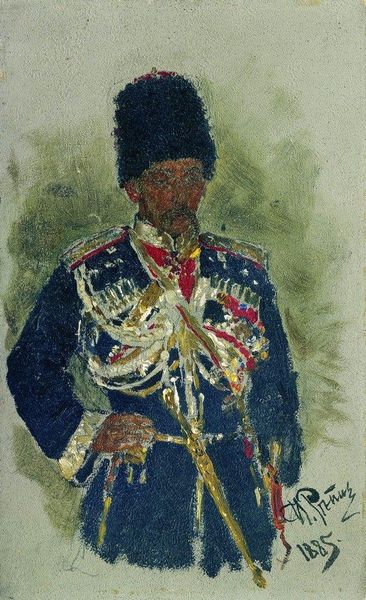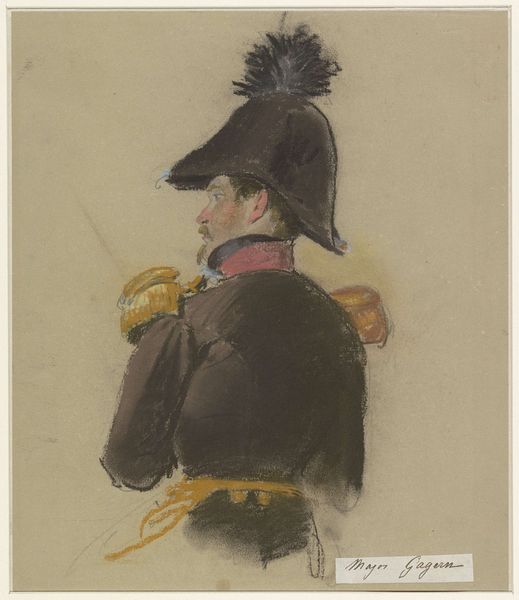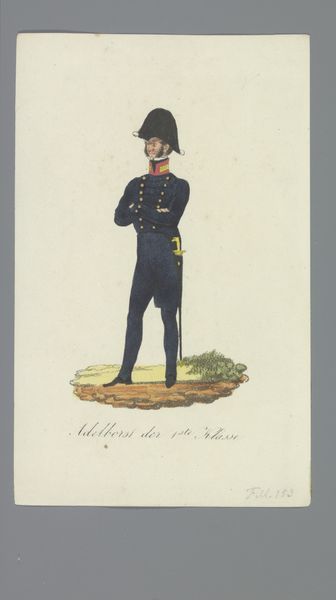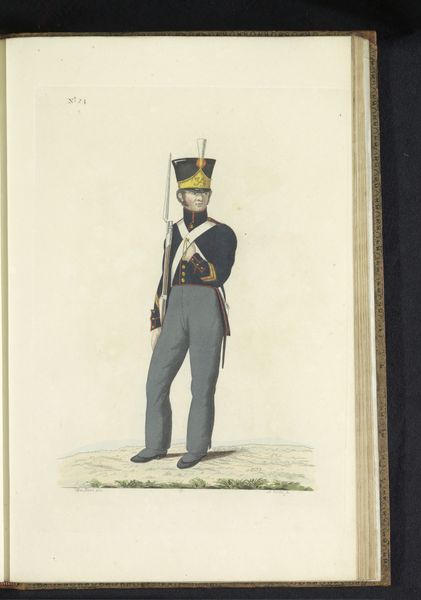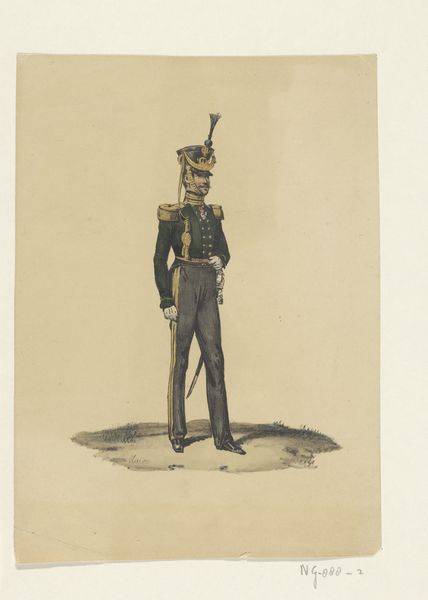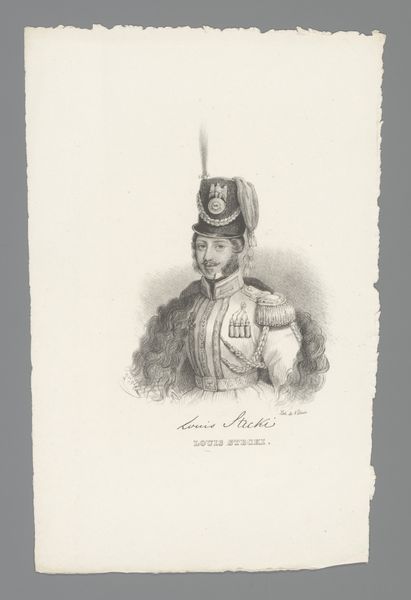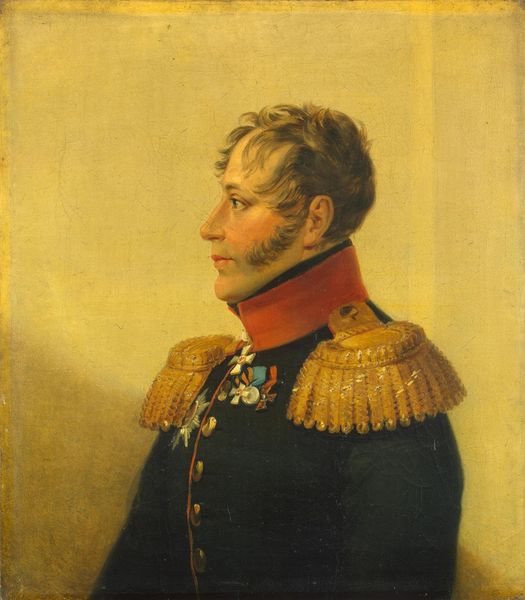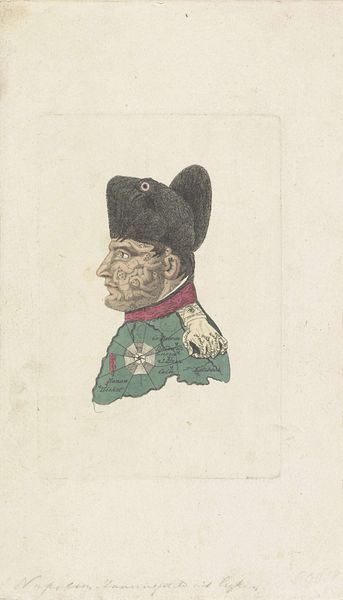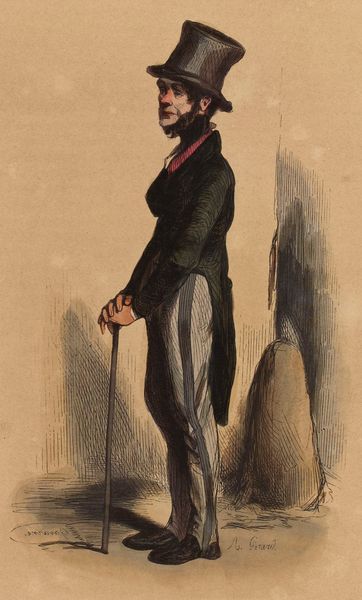
painting, watercolor
#
portrait
#
painting
#
watercolor
#
romanticism
#
watercolour illustration
#
history-painting
#
realism
Dimensions: height 284 mm, width 214 mm
Copyright: Rijks Museum: Open Domain
Curator: Right now we’re looking at “Portretstudie van kapitein J.J.P. van Munnick,” which translates to “Portrait Study of Captain J.J.P. van Munnick,” created by Nicolaas Pieneman sometime between 1819 and 1860. Editor: Wow, he really commands your attention, doesn't he? It's almost theatrical, like he’s stepped right out of a play, all imposing posture and elaborate military dress melting out from the edges. Curator: That’s interesting. The watercolor definitely lends a sense of immediacy, capturing a specific moment. I see this work primarily as a visual document, showing us how the Dutch military elite wanted to be seen. Editor: See, I think it’s much more than that. It's like Pieneman caught him between breaths, revealing a flicker of the man beneath the uniform, almost weary if you look closely. The soft washes create this lovely dreamlike atmosphere that contrasts so nicely with the rigidity implied by the uniform. Curator: I'd argue that the romanticism you are feeling in the watercolour, comes primarily from his outfit: high red collar, decorated hat, silver epaulettes—it's designed to inspire awe and reinforce his position. Editor: But that is just part of the effect, the medium lends it vulnerability. And consider the absence of background, this feels like it wants to get at something more immediate, don’t you think? As though Pieneman's less interested in the official story and more in the lived reality of the man. The face. That subtle anxiety? That's where the real story is, not just in the brass buttons. Curator: It does offer a window, certainly, onto the image military officers cultivated for themselves. It's that push and pull, the private individual versus the public persona, that Pieneman so deftly captures. A tension, perhaps, we can still recognize today. Editor: I think it is still relevant because, as always, at the center we are just all people, dressed in various costumes.
Comments
No comments
Be the first to comment and join the conversation on the ultimate creative platform.
